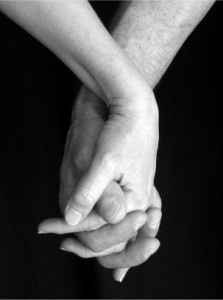 From time to time, a big sheet of butcher paper goes up on the wall at my gym. A question appears in red Magic Marker with space for members to write their answers. The questions range from the overtly fitness related—What’s your favorite workout?—to the more topical—Your favorite part of Thanksgiving dinner?
From time to time, a big sheet of butcher paper goes up on the wall at my gym. A question appears in red Magic Marker with space for members to write their answers. The questions range from the overtly fitness related—What’s your favorite workout?—to the more topical—Your favorite part of Thanksgiving dinner?
I’ve been tempted, once or twice, to stir up a little trouble by adding Gloria Gaynor or the Monkees (or, for that matter, any tune recorded before 1980) to Who do you listen to on your iPod during a workout? or answering Reading in the library to Your favorite recess game as a child?
A couple weeks ago, a new question went up, right in the stretching area. You can’t avoid it: the sign crowds out the mats hanging from hooks and the spray bottles of disinfectant to avoid spreading flu germs. What’s your greatest accomplishment?
Answers range from training for Iron Man to my children to getting my mother-in-law to stay at a hotel when she visits. These answers have started me thinking—and not just about how I really should start doing crunches again. Are one’s children themselves an accomplishment? And as for getting the mother-in-law to stay elsewhere, I can’t help wonder what else that person has been up to—and if I’m taking the question too seriously.
Maybe I’m overthinking, but here I am, leg in the air, focusing on pressing up with my big toe, wondering what really constitutes accomplishment. Is it the hurdles we clear on the way? Is it getting back up after we fall? How do we measure real accomplishment, especially in a society where more and more six-year-olds wear mortarboards and carry diplomas for finishing kindergarten?
Accomplishment implies something we do, something we work at, an action we prepare and train for. Accomplishment carries with it the sense of completion, of reaching a finish line, as a quick online search reveals about the word’s appearance in scripture:
In Esther 2:12, “so were the days of their purifications accomplished,” and in John 4:34, “My meat is to do the will of him that sent me, and to accomplish his work,” to cite two references.
Curiously, Merriam-Webster also defines the word as a “quality or ability equipping one for society.” Finishing college, makes sense. Suppressing road rage, OK. But is my recognition of a fish fork or my sporadic ability to make small talk really an accomplishment?
And what about all those accomplishments that shatter society’s expectations? They seem the most important of all.
I think about my own accomplishments as my CV lists them. Grad school and publication: absolutely significant, and yet—at the end of the day, my greatest accomplishment? Shouldn’t that be something grander, something selfless, something that spreads farther and wider? Something like love?
That’s it! That’s what I’ll write, in big capital letters on the sign. I fell in love long past when the odds said I would. I opened my heart, I went out on the proverbial limb and took a chance. After years of believing myself congenitally incapable of intimacy, I learned otherwise.
But can I really take all the credit? The follow-up question asks, And how did you achieve it? The man who wrote my children for his greatest accomplishment writes Getting lucky with my wife as how he did it. Others list qualities such as patience and perseverance and persistence.
What am I going to write: Kissed a lot of frogs? Showed up one night at Grace Cathedral for a class? That’s what happened: I met C in a class. A matter of luck or timing, but is it achievement? It’s hardly the work of brokered peace or even marathon training.
Some might say—and many have said—that I paid my dues in all those years of loneliness and loss and frogs. That I did my part in showing up, in “putting myself out there.” I think that kind of accounting sounds a little too neat for me. Plenty of people have paid much harder dues than I did, and are still waiting.
Saying I achieved something that felt both utterly natural and completely surprising feels much too glib, as though I scored a perfect 10 on some Cosmopolitan magazine quiz. After all, falling in love wasn’t and isn’t about what I did. Another person played a role, taking every bit as much a risk.
And then there’s that third factor beyond either of us. The factor that made me want to lean my head on C’s shoulder one night as we sat around the seminar table, and a few mornings later woke me from a dream of sleeping in his arms. All this, mind you, before we’d even walked home from class together. I hadn’t even let myself think of him beyond “nice guy in class.”
The achievement of love, it seems, lies in opening ourselves to something much bigger than ourselves, something that makes the whole notion of credit moot. If Love is the answer, Grace is how it comes about.
Not by anything we do, but by being blessed in ways wondrous and mysterious and infinite, and by recognizing it. Over and over. No finish line. No accomplishment or achievement necessary. Thanks be to God.











